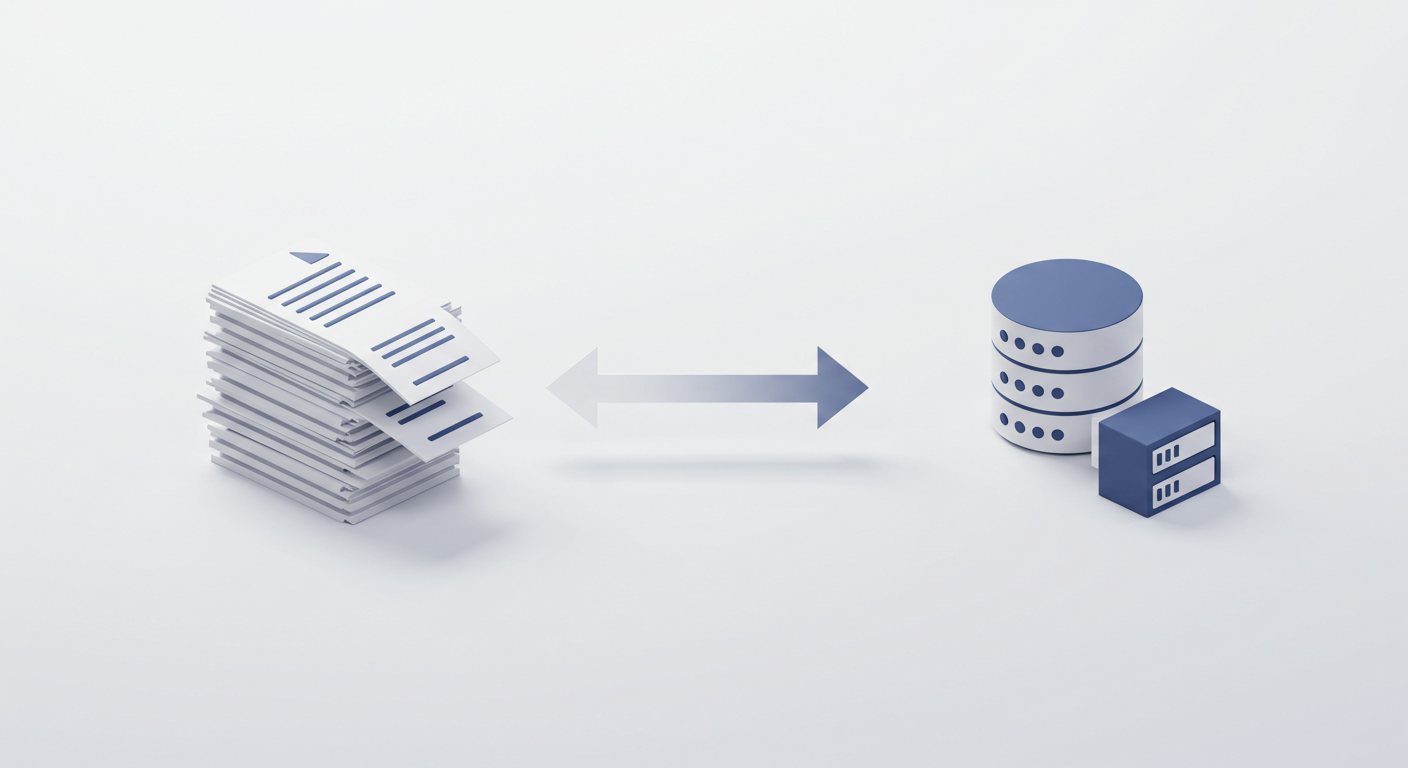GDPR Compliance: What It Means for Your Business's Data Handling Practices
Data protection is more critical than ever for businesses of all sizes. With the introduction of the General Data Protection Regulation (GDPR) by the European Union (EU), data privacy standards have reached a new level, impacting businesses globally.
At Barrett Solutions, we understand that GDPR compliance is essential, and we’re here to help you understand its importance and guide you through the steps to achieve and maintain compliance.
As a trusted technology partner, we offer comprehensive solutions tailored to your unique business needs. Our expertise spans:
- Custom software development
- System integrations
- Innovative problem-solving
- SEO & marketing services
- App development
- Website development and graphic design
- General IT support
Explore our full range of services and solutions tailored to your business needs. From custom software to dependable IT support, Barrett Solutions is your trusted partner. Reach out to us at info@barrettsolutions.co.uk and let us help drive your business forward—whether you’re launching your first website or developing advanced, bespoke systems.
What is GDPR?
The General Data Protection Regulation (GDPR) is a comprehensive data privacy law enacted by the EU in May 2018. It grants EU citizens more control over their personal data and standardises data protection laws across Europe. GDPR compliance is required not only for EU-based businesses but also for any business that handles or processes the personal data of EU residents. This broad scope means that organisations worldwide must adhere to these regulations, making GDPR compliance a vital aspect of global data privacy.
Key Principles of GDPR Compliance
Understanding the core principles of GDPR is the first step toward implementing a compliant data management strategy. The regulation is built on seven foundational principles, guiding how personal data should be handled:
Data collection must have a legitimate purpose, and individuals must be informed about how their data is used.
Data collected should be used only for the specified purpose and not beyond.
Only essential data should be collected, minimising unnecessary or excessive information.
Personal data should be kept accurate and up-to-date, with mechanisms in place to update it if needed.
Data should not be stored longer than necessary; retention policies are essential.
Data must be securely stored, with appropriate protections against unauthorised access, loss, or damage.
Organisations are responsible for demonstrating GDPR compliance through policies, audits, and documentation.

Note: Implementing these principles is key to compliance, protecting your business from regulatory issues and building trust with your clients.
How GDPR Impacts Your Business
GDPR compliance impacts various aspects of your business, from data collection practices to data breach response. Here’s a breakdown of key areas where GDPR will affect your business:
Data Collection and Processing
GDPR requires a clear legal basis for collecting and processing personal data, such as consent, contractual necessity, legal obligation, vital interests, public task, or legitimate interests. Your data collection processes must align with one of these bases to comply.
Consent Management
If you rely on consent for data processing, GDPR sets strict standards for what qualifies as valid consent. It must be:
- Freely given
- Specific
- Informed
- Unambiguous
Your consent mechanisms should reflect these standards and maintain records of all consents obtained.
Data Subject Rights
GDPR provides individuals with several rights regarding their personal data, including:
- Right to Access: Individuals can request access to their data.
- Right to Rectification: They can request data corrections.
- Right to Erasure (Right to be Forgotten): They can request data deletion.
- Right to Restrict Processing: They may restrict certain processing activities.
- Right to Data Portability: They can request their data in a commonly used format.
- Right to Object: They can object to specific types of processing, such as marketing.
Data Protection by Design and Default
GDPR requires businesses to incorporate data protection into their systems and practices from the outset. Key measures include:
- Pseudonymization and Encryption: Protect personal data by masking identifiers.
- Ongoing Security and Resilience: Ensure data processing systems are robust and resilient.
- Regular Testing and Evaluation: Conduct regular audits and updates of security protocols.
Data Breach Notification
Under GDPR, certain data breaches must be reported to regulatory authorities within 72 hours. In some cases, affected individuals also need to be informed, adding urgency and importance to data breach management.
Steps to Achieve GDPR Compliance
To ensure your business meets GDPR requirements, you’ll need a structured approach. Here’s a step-by-step guide to becoming GDPR compliant:
- Conduct a Data Audit – Identify what personal data you collect, where it’s stored, how it’s used, and who has access. This provides a clear picture of potential compliance gaps.
- Update Privacy Policies – Your privacy policies must be transparent and accessible, explaining what data is collected, why it’s collected, how it’s used, and individuals’ rights regarding their data.
- Implement Consent Mechanisms – Ensure your consent forms are compliant by eliminating pre-ticked boxes and requiring explicit opt-in for data collection activities.
- Strengthen Data Security – Implement robust measures such as data encryption, security audits, access controls, and employee training. These reduce the risk of unauthorized access and data breaches.
- Develop a Data Breach Response Plan – Ensure you have a plan for detecting, reporting, and investigating breaches. This plan should involve training your team to respond quickly and effectively.
Consider appointing a DPO to oversee data protection practices, especially if you handle sensitive data on a large scale.
For high-risk data processing, DPIAs help identify and mitigate risks associated with data handling.

Benefits of GDPR Compliance
Although achieving compliance requires effort, it offers several key benefits:
- Enhanced Customer Trust: Transparent data practices increase customer confidence.
- Improved Data Security: Better security measures reduce the risk of breaches.
- Competitive Advantage: Compliance can differentiate your business in the market.
- Operational Efficiency: Streamlined data processes can improve productivity.
How Barrett Solutions Can Support Your GDPR Compliance
Navigating GDPR compliance can be complex, but Barrett Solutions provides tailored support to guide you through the process, ensuring your business meets all regulatory requirements while optimising data practices.
We perform a thorough assessment of your current data handling practices, identifying areas for improvement and helping you achieve compliance.
Our team works with you to develop a GDPR-compliant data protection strategy tailored to your business needs and objectives.
We provide expert support to help you implement crucial technical protections, such as:
- Data Encryption Solutions: Safeguard sensitive data with secure encryption.
- Access Control Systems: Limit access based on role and necessity.
- Secure Data Storage: Protect personal data at rest and in transit.
We assist in creating or updating your data protection policies, consent forms, and procedures to align with GDPR requirements.
Our Monthly Support Contracts include continuous monitoring, ensuring you stay compliant as your business evolves.
Ready to Start with GDPR Compliance – Let Us Help
GDPR compliance is essential for protecting your business and your clients’ data. At Barrett Solutions, we help you navigate the complexities of data protection with expertise and care, transforming compliance into a competitive advantage for your business.
Contact Us Today
To learn more about how Barrett Solutions can support your GDPR compliance efforts, reach out to us at info@barrettsolutions.co.uk. Our dedicated team is ready to provide a free consultation and discuss a tailored approach to your business’s data protection needs.
Don’t wait until data protection becomes an issue—partner with Barrett Solutions to strengthen your compliance, safeguard your data, and build trust with your clients.

Bridging the Signal Gap: A Case Study on Delivering Wi-Fi for Metal Buildings
Wi-Fi should be simple. In most modern offices, it’s a utility we take for granted. But what happens when the very structure of your building is designed to block the signal? This is a common, frustrating reality for many UK businesses operating from warehouses, industrial units, or modern metal-clad offices.

From Email Chaos to Automated Offers: A Web App Case Study
See how a custom client submission portal solved manual workflow chaos for a UK SME. A case study in bespoke web app development from Barrett Solutions

Solving Multi-Channel Chaos: A Case Study in Custom E-commerce Integration
See how custom e-commerce integration solved multi-channel chaos for a UK SME. Learn about our bespoke Sage 200 API solutions & stock management.

Fragmented Tech The Real Drain on Your SME’s Time & Money (And Why a Unified Partner is Smarter)
Multiple tech vendors costing your SME? See why a holistic tech partner cuts waste & improves results with Barrett Solutions
